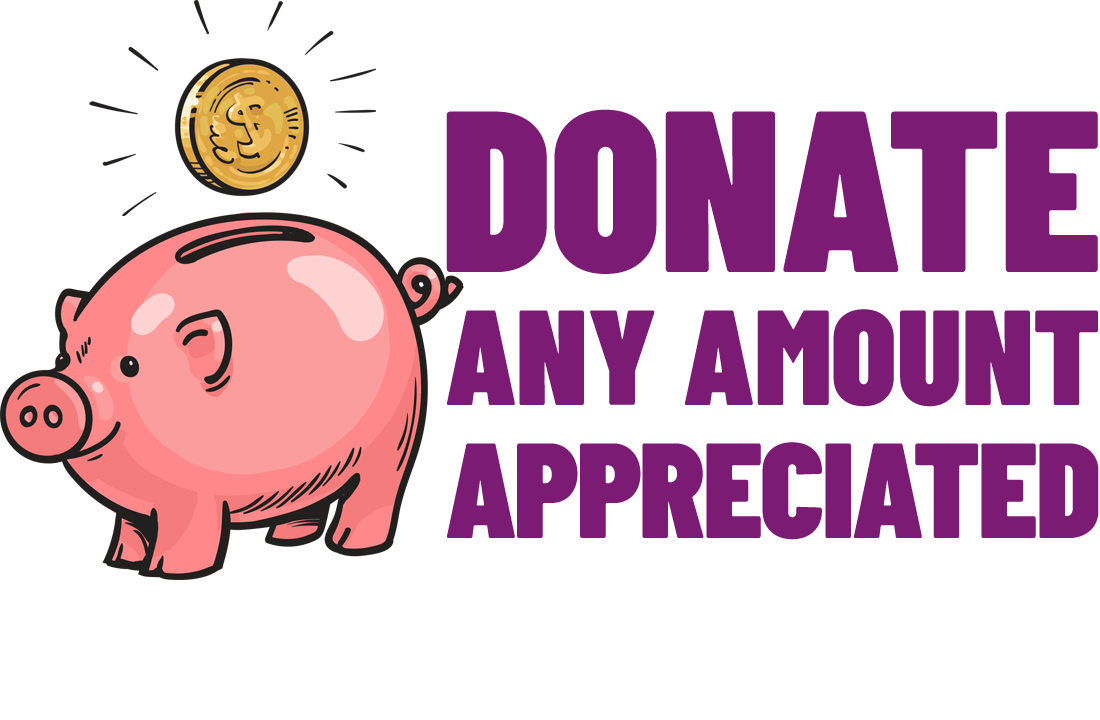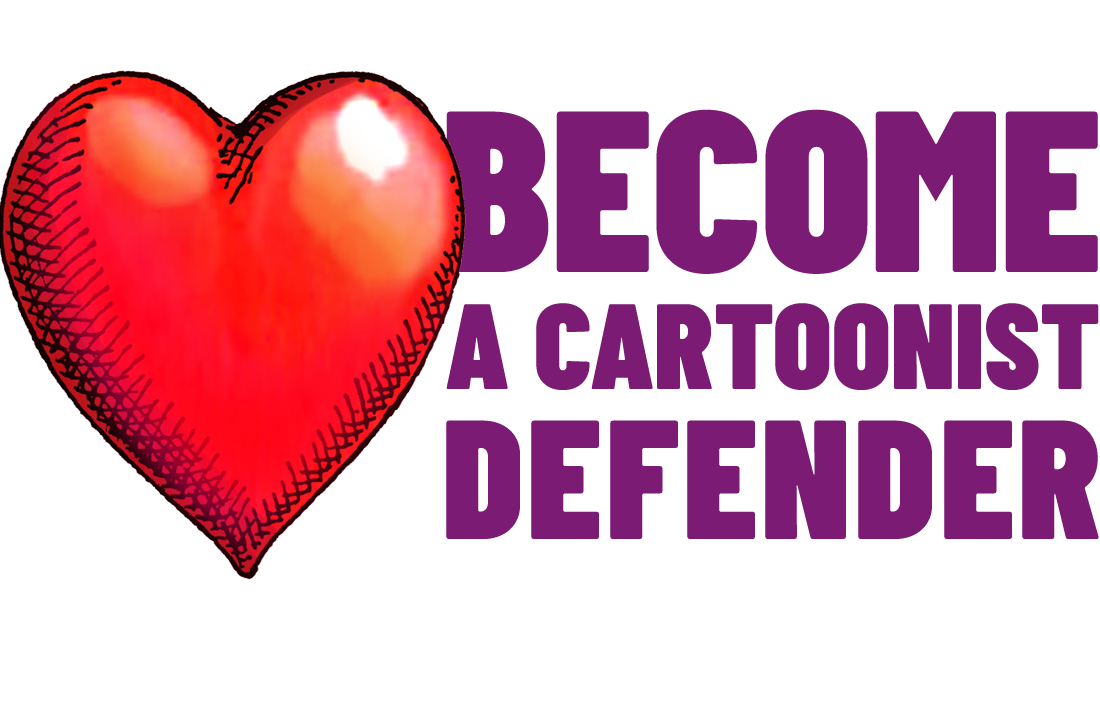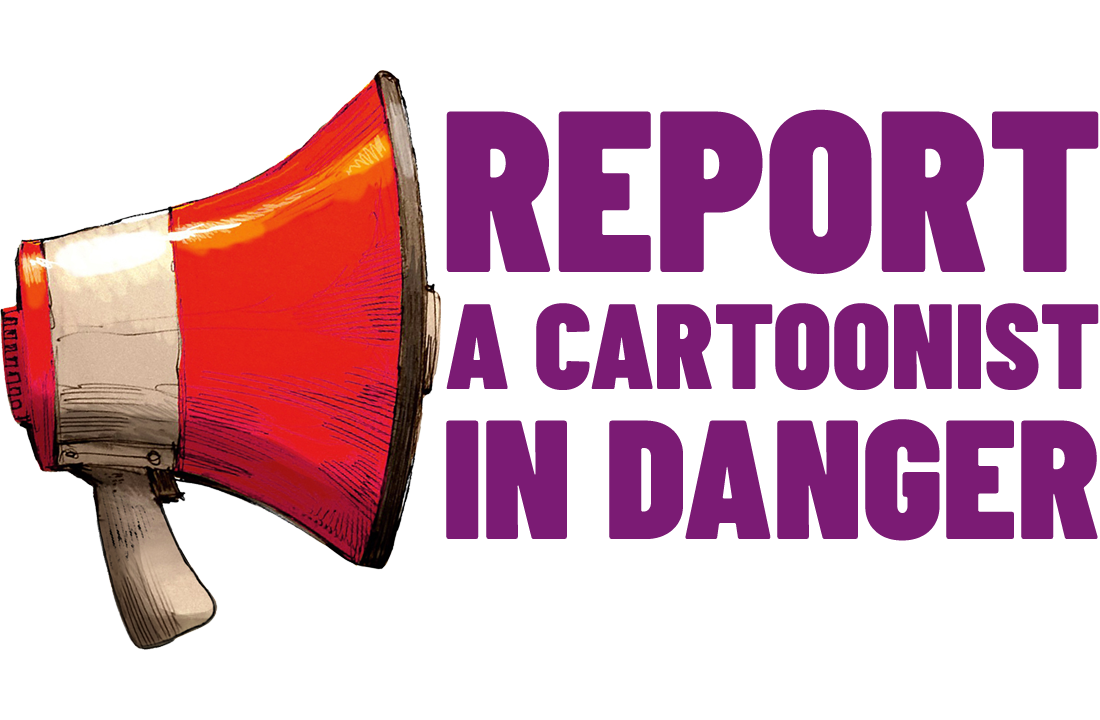A statement from CARTOONISTS RIGHTS as President Trump’s latest travel ban takes effect in the week of June 9th, 2025.
While the last several months of policy changes in the US have offered multiple causes for dismay, our organization is particularly aggrieved by the newly announced “travel ban” that came into effect June 9th. Among the those named on the list of affected countries, six are nationalities of threatened cartoonists to whom we have offered direct assistance in the past. Furthermore, three are past recipients of our Courage in Cartooning Award and two sit on our board.
Bluntly, the message sent to a sizeable portion of our network by our own government is that they are too dangerous to allow into our country. This is galling in the extreme, since these individuals are invariably opponents and critics of the regimes that (we must assume) pose the risks that have prompted the change in policy.
This comes at the same time as our entire sector is reeling from the cuts to spending on foreign aid, the Executive Orders that have suspended assistance to refugees, and the overreach of ICE that has – among a great many other outrages and scandals – resulted in the three-week detention of a British cartoonist, Rebecca Burke at a “processing center” in Tacoma, WA.
The immediate operational consequence is this: until further notice, we advise international cartoonists against travel to the United States, regardless of the purpose and point of origin. Your safety cannot be guaranteed.
The broader consequences for free expression are alarming. Cartoonists already face censorship and persecution in their home countries. With the USA shutting its doors, they may lose vital lifelines, including legal refuge, speaking engagements, and international recognition.
The questions that organizations like ours must now consider are threefold:
- If the US government is determined to render the entire population of certain countries persona non grata, what are the consequences for US-based entities that continue to engage with individuals in those countries?
- How does all of the above intersect with added pressure on non-profits? Will assisting people from restricted countries invite scrutiny, obstruction, or reprisals? Will our free expression become grounds for interrogation, surveillance, or deportation? In championing alleged “terrorists” – foreign or domestic – do we incriminate ourselves?
- With what moral authority can US-based human rights defenders campaign for freedom of expression when our government engages in precisely the same methods of so many other repressive regimes deploy: indefinite and arbitrary detention; punitive deportation; use of military personnel to quell peaceful protest?
Throughout history, cartoonists have been at the forefront of challenging tyranny and exposing corruption. Political cartoons have shaped American democracy, and satire has always been a voice demanding accountability of those in power. By shutting out cartoonists who challenge repression, the US weakens its own democratic tradition and credibility as a haven of free speech.
CARTOONISTS RIGHTS urges policymakers to reverse course, and for the judiciary and congressional branches to exercise their power and challenge the executive. America’s abandonment of those who risk everything to challenge tyranny sends a clear message to repressive regimes worldwide: persecution works.









